Innovation – whether in forms of a noteworthy enhanced product or service; a new marketing method or a novel organisational approach at a workplace, for example – is crucial in a nation’s long-term socio-economic growth.
The Innovation Policy Platform – an online interactive space developed by the Organisation for Economic Co-operation and Development and the World Bank – notes that among other significant contributions, innovation can lead to increased employment and business opportunities; sustainable approaches in tackling environmental challenges; and new measures in addressing social problems including poverty, inequalities as well as health and demographic issues.

For the United Nations Development Programme (UNDP), innovation has been an integral aspect of the United Nations (UN) and UNDP’s strategies, and is fundamental to make the best use of and boost structural transformations required to reach the Sustainable Development Goals.
It has become more important than ever in light of the COVID-19 pandemic, with the world at present experiencing worsening economic and geopolitical situations, compelling nations to utilise their limited resources in a more efficient and effective manner.
“So this is an opportunity for governments and the international community with all national partners to rethink the way we address poverty, inequality and environmental degradation – no longer separately, but together to find solutions,” said UN Assistant Secretary-General, UNDP Assistant Administrator and Director of the Regional Bureau for Asia and the Pacific Ms Kanni Wignaraja.
In her remarks during Malaysia Innovates Summit 2022 in Kuala Lumpur on 2 August 2022, she explained that in 2021, UNDP helped more than 80 countries in adopting 580 digital solutions to enhance their public services, such as e-governance and e-commerce.
She also reiterated the organisation’s commitment to enable governments including Malaysia’s to shape their own local innovation ecosystems to achieve their national aspirations.
“So together with our partners, we have now established one of the world’s largest and fastest learning networks on innovation focused on development challenges.
“We now have 91 accelerator labs supporting 115 countries to test, share and learn the latest approaches and concepts that will improve the way we undertake development,” she added.
A Strategy Towards Becoming a High-Income Nation by 2025
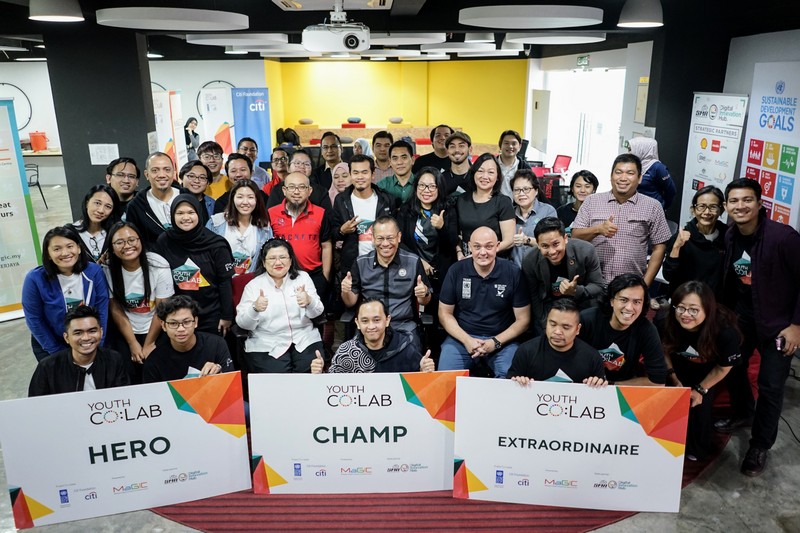
According to the Global Innovation Index (GII) published by the World Intellectual Property Organisation, Malaysia ranks 36th among 132 economies studied in the 2021 edition, and ranks 8th among 17 economies in Southeast Asia, East Asia and Oceania.
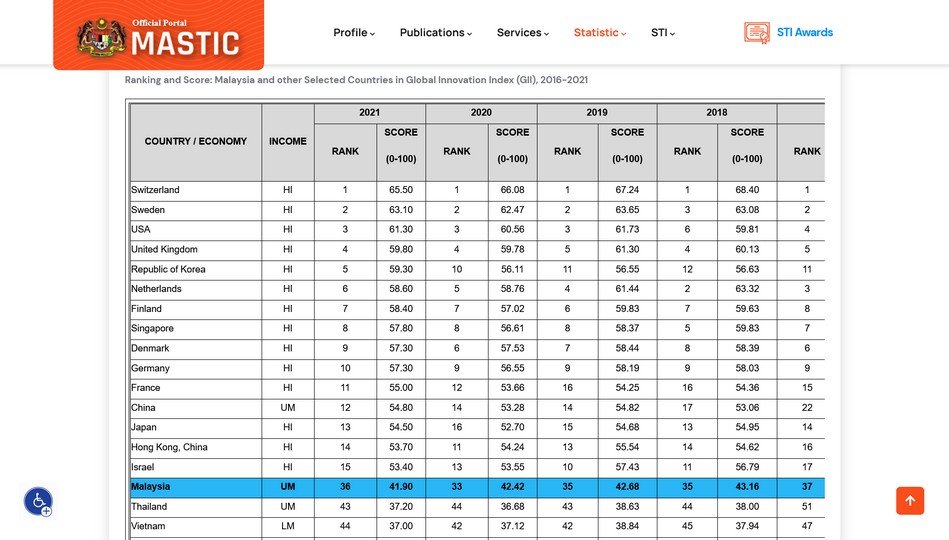
Teeming with talents and innovative solutions to overcome local and global challenges, the country is currently shifting its innovation focus towards areas such as alternative energies and sustainability, artificial intelligence and digital technologies, biotechnology and human health, manufacturing, and mobility.
However, due to the lack of incentives and drivers in the wider ecosystem, Ms Wignaraja noted that much is needed to be done for Malaysia to harness the advantages that innovation has to offer to its socio-economic development.
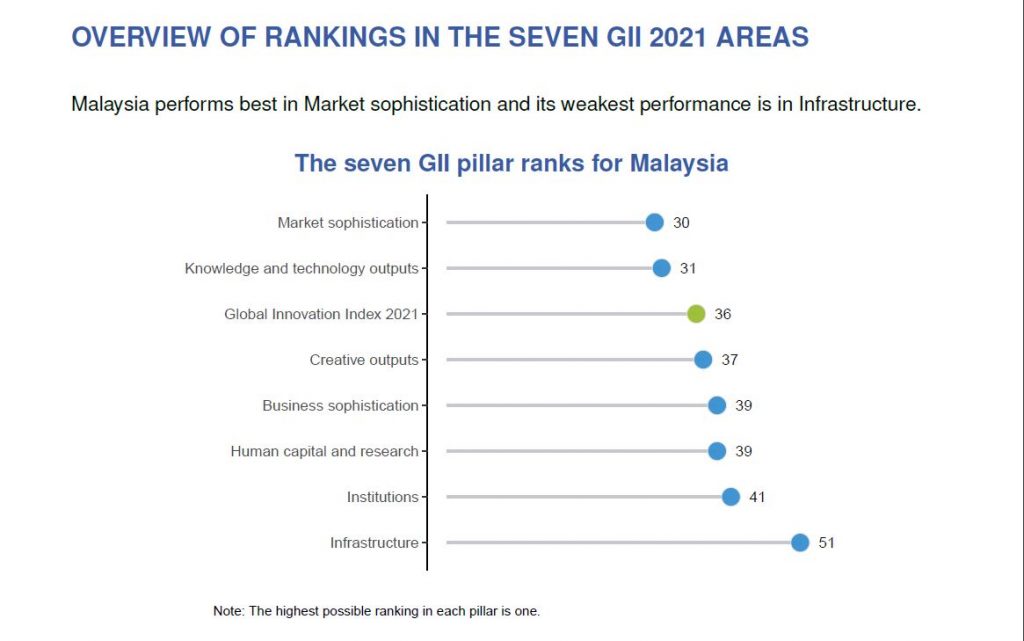
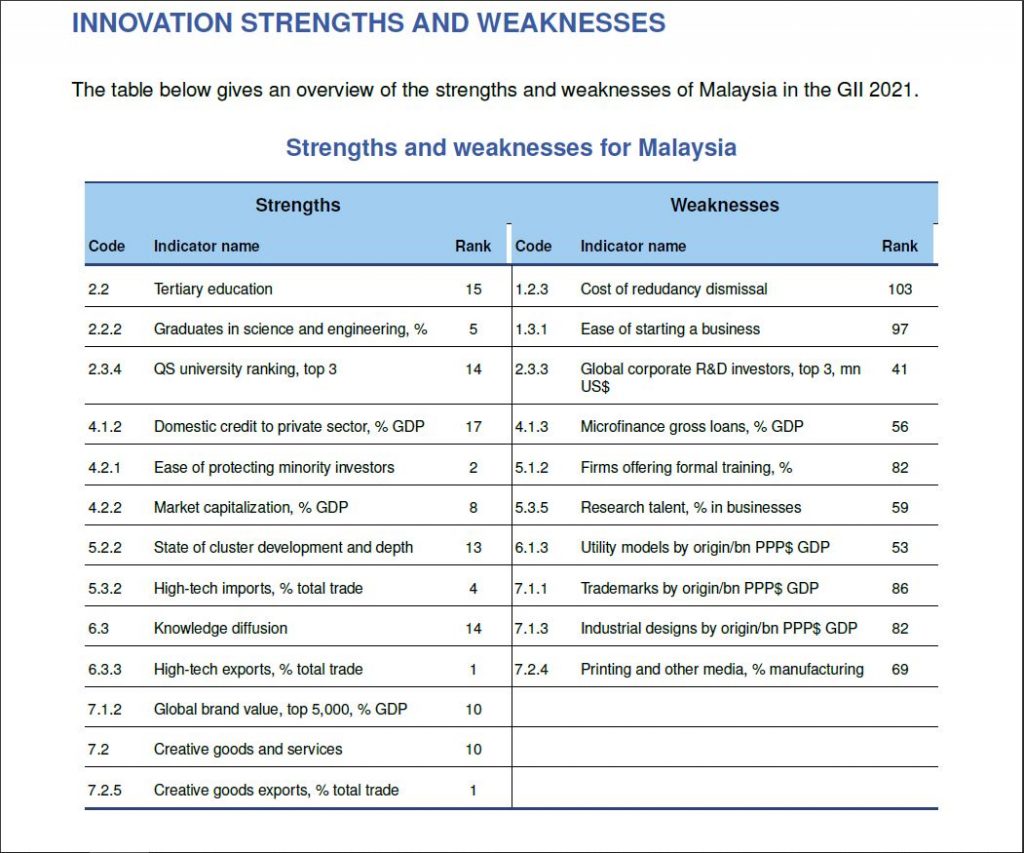
She cited the 2019 National Survey of Research and Development, in which only 9,000 patent applications were made between 2013 and 2022 – a mere fragment compared to the number of research publications produced at 120,000 in the same period.
“In this regard, we can see the 12th Malaysia Plan…(outlines) bolder and (newer) measures to overcome such limits and improves this domestic ecosystem (which) is something at UNDP we are proud to accompany,” she said.
In fact, one key initiative in the national development plan, under the strategy ‘Strengthening Capacity and Capability in Research and Development and Commercialisation and Innovation (R&D&C&I)’ is to ensure alignment of R&D&C&I activities with national priorities through the Research Management Unit (RMU).
The unit, set up in October 2021 under the Economic Planning Unit of the Prime Minister’s Department, is part of the Malaysian Government’s overall efforts to emphasise on innovation to propel socio-economic progress, more so as it aspires to become a high-income nation by 2025.
It was through RMU’s numerous engagement sessions with various R&D&C&I stakeholders, stated Minister in the Prime Minister’s Department (Economy) YB Dato’ Sri Mustapa bin Mohamed, that led to the organisation of Malaysia Innovates Summit 2022 in collaboration with UNDP.
The inaugural summit served as a response to a major challenge raised throughout those sessions: the lack of a platform to bring together relevant stakeholders in a space that provides opportunities for open and productive interactions.
“Let the summit be the starting point for us to join forces to work together and reduce silo practices. With that, we will be able to achieve success in innovation, including local innovation,” he said in his address during the event.
Entities to Develop Malaysia’s Innovation Ecosystem
RMU is one of three entities established to ensure a more systematic innovation ecosystem in Malaysia.
In his keynote speech during Malaysia Innovates Summit 2022, Prime Minister YAB Dato’ Sri Ismail Sabri bin Yaakob briefly described the other two organisations:
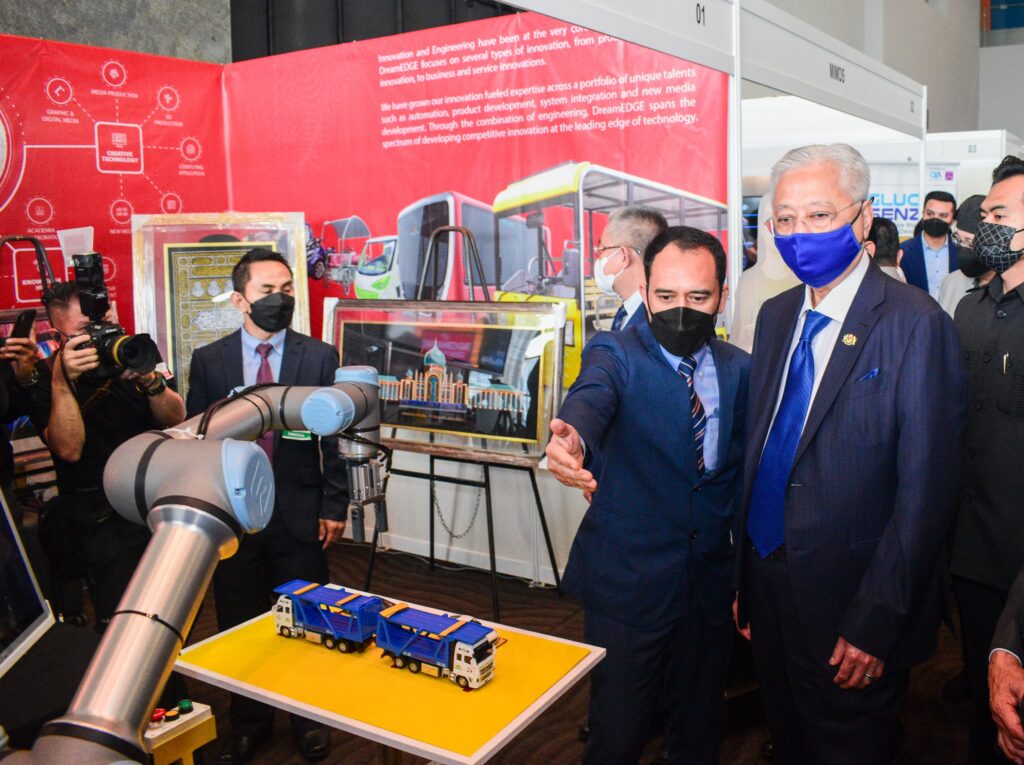
- The Malaysian Research Accelerator for Technology and Innovation under the Technology Commercialisation Accelerator Programme to boost commercialisation activities between academia and industries; and
- The Malaysian Science Endowment under the supervision of the Ministry of Science, Technology and Innovation (MOSTI) and Academy of Sciences Malaysia, which will create alternative funding for R&D&C&I through collaborations between industries and international bodies.
“These three entities need to work together to ensure that the results of R&D&C&I and intellectual property become high value-added products, thus putting Malaysia in line with advanced innovation-based countries such as South Korea, Switzerland and Singapore,” he said.





